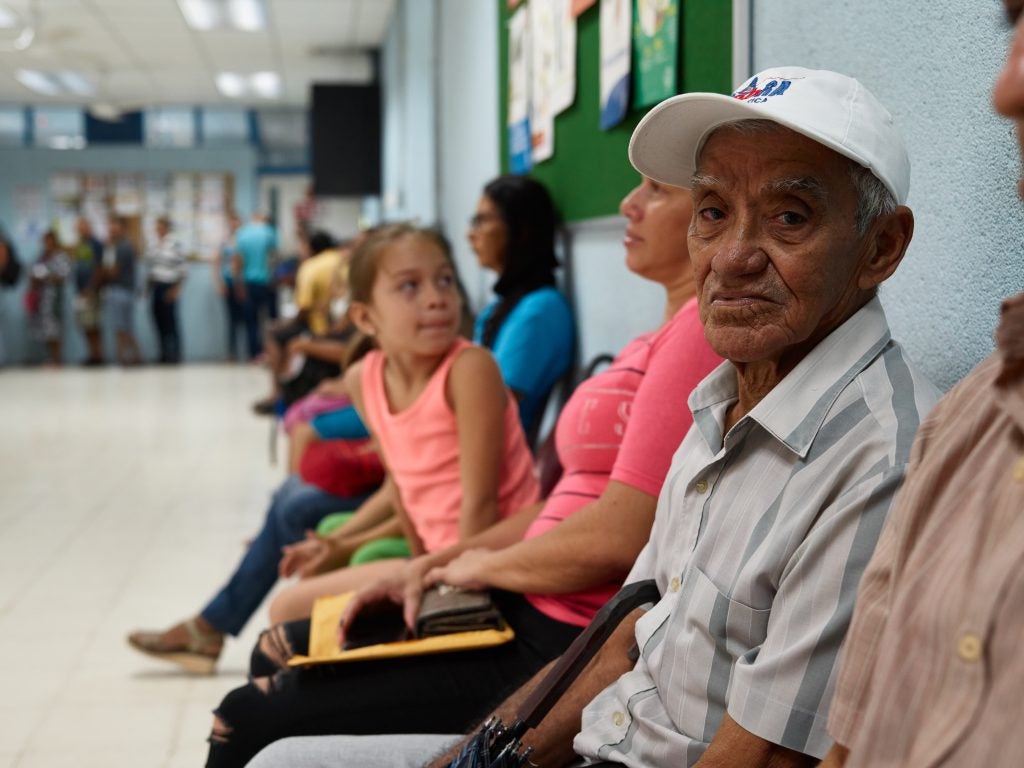Around the world, many countries are moving toward systems that support universal health coverage. In the United States, universal access to care has long been a topic of debate, with varying definitions and proposed solutions.
While there may not be a one-size-fits-all approach to ensuring universal health coverage, there are valuable lessons to be learned from countries that have spent years reforming systems to meet the diverse needs of their populations. Costa Rica’s journey to achieving a universal primary health care model that ensures all people have access to high quality, comprehensive, and affordable primary health care offers valuable insights.
Learn more about how the Costa Rican model works in a short video developed by Ariadne Labs for the Primary Health Care Performance Initiative.
In 2017, Ariadne Labs’ Primary Health Care Program traveled to the Latin American country for a firsthand look at just how the country has achieved its model of universal health care.
A resulting case study examines the path the country took, beginning with health care that was largely available only in urban centers, or controlled by banana and coffee companies, to a centralized model of care that delivers equitable, person-centered care to the vast majority of the population.
The country of five million has the third highest life expectancy in the Western Hemisphere and an infant mortality rate that is half the average of the Latin American and Caribbean region, a testament to the strength of their primary health care system.
By dividing the country into 104 geographic areas, and assigning each person within those areas to an integrated primary health care team, Costa Rica was able to achieve the essential functions of high-quality primary health care: continuous, comprehensive, coordinated, and patient-centered care that serves as the first point of contact for health encounters.

The case study highlights four key strategies that Costa Rica used to develop their model which may be generalizable to other contexts, including: bureaucratic integration, multidisciplinary teams, empanelment, and measurement and feedback loops.
- Bureaucratic integration: In the 1990s, amid growing dissatisfaction with the existing health care system, Costa Rica integrated the primary health care functions of the Ministry of Health and the country’s social security agency. This integration allowed all population health to be managed by one agency with one set of goals and one budget, ensuring that both preventive and curative care were incorporated into the new model.
- Multidisciplinary teams: Integrated Primary Health Care Teams — known as EBAIS — care holistically for a geographically defined group of citizens. The teams are typically comprised of a physician, a nurse, a community health worker, a pharmacist, and a medical data clerk and are able to provide comprehensive and coordinated preventive, promotive, and curative care.
- Empanelment: As mentioned previously, Costa Rica divided the population into 104 geographic areas — a concept known as empanelment. Each area is served by a specific primary health care team that supports robust, proactive population health management.
- Measurement and feedback loops: Together, geographic empanelment and multidisciplinary teams provide a foundation for measurement and data generation to inform ongoing monitoring and improvement. Data collected at the population, facility, and national levels allows for early identification of at-risk populations who may need additional resources.
Since 2017, the Costa Rica case study has been summarized by integratedcare4people.org, a resource created to support the WHO Framework on integrated people-centred health services; a publication in Health Affairs also details the findings.
Asaf Bitton, MD, MPH, Ariadne Labs’ Executive Director and previously the Director of the Primary Health Care Program, shared the importance of the case study findings in a Project Syndicate article. In a video accompanying that article, Bitton describes the current challenges systems face in achieving the criteria for high-quality primary care, as well as the importance of high-functioning primary health care systems to achieve universal health care.
As countries around the world grapple with how best to structure health care systems to meet the needs of their populations, countries such as Costa Rica offer important insights.
Resources included in this article:
- Full case study from Ariadne Labs: Building a Thriving Primary Health Care System: The Story of Costa Rica. An accompanying video describes the structure of the system.
- Comprehensive Primary Health Care Reform in Costa Rica, IPCHS case summary
- Primary Health Care That Works: The Costa Rican Experience, Health Affairs
- The 5S-5M-5C Schematic: Transforming Primary Care Inputs to Outcomes in Low-income and Middle-income Countries, British Journal of Medicine
- Video Interview with Asaf Bitton: The Promise of Primary Care, Project Syndicate
- What Happens When Primary Care is Universal?, Project Syndicate (subscription required)


